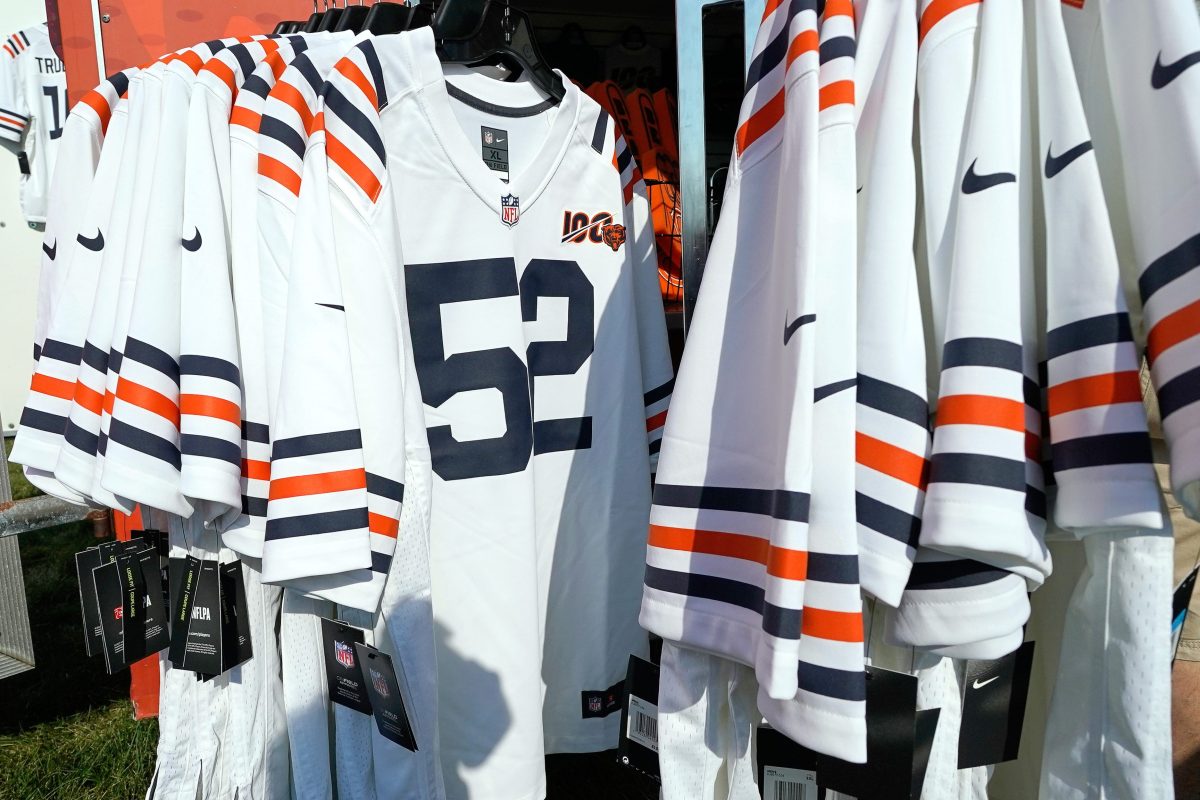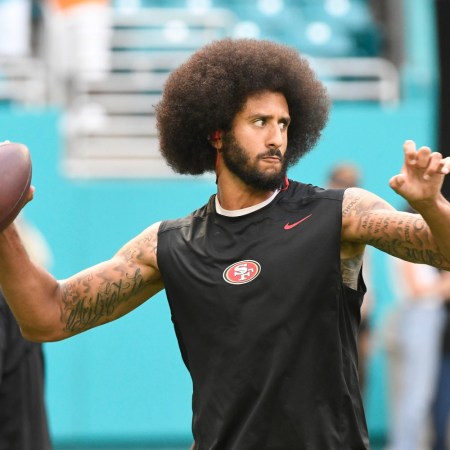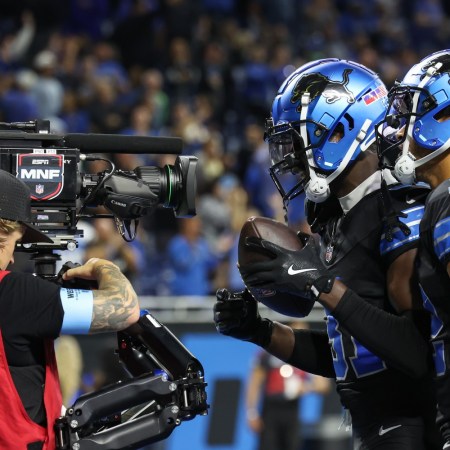NFL players who are looking to move into the single digits this season thanks to the league expanding which positions are eligible to wear which numbers had better have plenty of zeros in their bank accounts.
Adopted earlier this week with a number of other proposals, the NFL’s new rule about swapping numbers allows quarterbacks, punters and place-kickers to wear numbers 1-19, defensive backs 1-49, and then running backs, tight ends and wide receivers 1-49 and 80-89. Offensive linemen can now wear 50-79, defensive linemen 50-79 and 90-99, and linebackers 1-59 and 90-99.
But, at least for this season, it is going to be to pay — substantially — for the right to play with a new jersey number.
“Per NFL rules, if a player wants to change his number THIS SEASON, he would have to buy out the existing inventory of jersey distributors,” Kevin Seifert of ESPN reported on Twitter. “If he wants to give notice now to change his number NEXT SEASON, there would be no requirement to buy out inventory. To be clear, this is a longtime rule that is part of the league’s agreement with its manufacturing partners.”
That policy will clearly make it substantially pricier for stars to change numbers and seems pretty unfair, all things being equal, considering NFL players can be cut or traded (rendering their jerseys moot) at any point. Teams will not lose out from rendering jerseys unwearable, but players have to pay to take the same action. At least that’s the way it seems from the policy regarding number changes by players the league reiterated to ProFootballTalk.
“If a player requests a change for the upcoming year and there is an existing inventory of unsold jerseys with his current number on them, the player must purchase the unsold jerseys before the change happens. (At wholesale cost, not retail — presumably.) If the player declines to do so, they can remain in the number and change the following year, at no cost.”
Though he won’t be changing numbers (but could easily afford to do so if he wanted to), Tom Brady is nonetheless perturbed about the league adopting the new policy, ostensibly because he thinks it could somehow lead to more players being put at risk of being injured.
“Good luck trying to block the right people now! [G]oing to make for a lot of bad football,” Brady posted on social media. Then, in case he was misunderstood, the soon-to-be-44-year-old quarterback doubled down about his feelings.
“DUMB,” Brady wrote. “Why not let the linemen wear whatever they want too? Why have numbers? Just have colored jerseys. . . why not wear the same number. . . DUMB.”
Given what it is going to cost, that’s what we’d say about paying to change numbers this season.
The Charge will help you move better, think clearer and stay in the game longer. Subscribe to our wellness newsletter today.



















